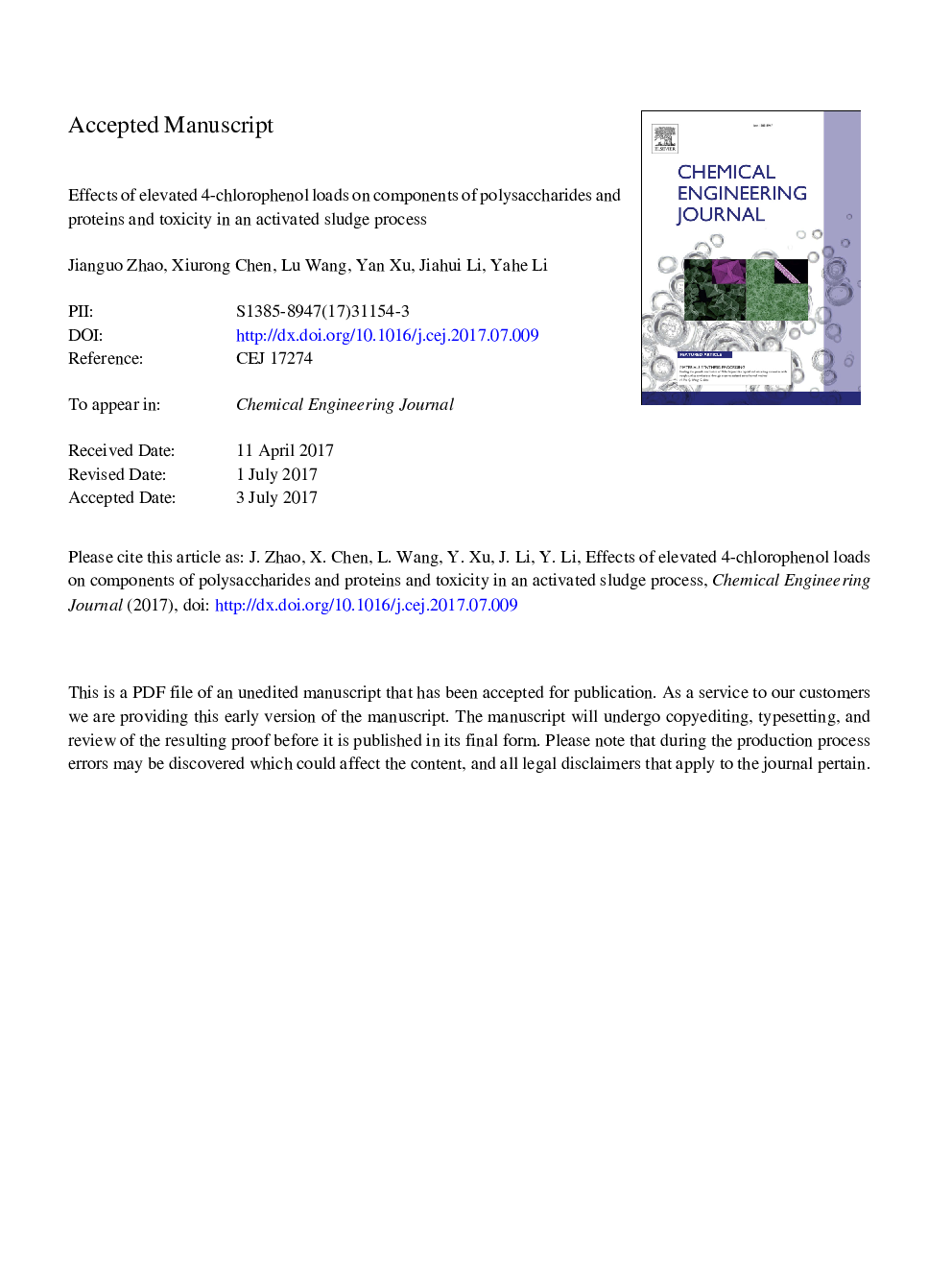| Article ID | Journal | Published Year | Pages | File Type |
|---|---|---|---|---|
| 4762878 | Chemical Engineering Journal | 2017 | 33 Pages |
Abstract
In this study, the effects of elevated influent 4-chlorophenol (4-CP) loads on components of polysaccharides and proteins and toxicity as well as their correlation in an activated sludge process were investigated. The toxicity in sludge was evaluated via a luminescent bacterium acute toxicity bioassay. Activated sludge, which was gradually acclimated via elevating influent 4-CP loads in a sequencing batch bioreactor (SBR), was used as the acclimated SBR. Another operated SBR without influent 4-CP was used as the control SBR. Results showed that after activated sludge was successfully acclimated with 10Â mg/L influent 4-CP, the influence of gradually elevated 4-CP loads on acclimated SBR was insignificant and the influent 4-CP was quickly degraded. However, the main components of polysaccharides and proteins in activated sludge had a significant change and the sludge toxicity basically increased with the elevated influent 4-CP loads. The correlation between the proteins and toxicity in activated sludge was significantly higher than that of the correlation between the polysaccharides and toxicity at different influent 4-CP loads. Proteomics analysis indicated that the up-regulated proteins in acclimated SBR directly or indirectly played a significant role in degrading 4-CP, resisting 4-CP toxicity and reducing sludge toxicity.
Related Topics
Physical Sciences and Engineering
Chemical Engineering
Chemical Engineering (General)
Authors
Jianguo Zhao, Xiurong Chen, Lu Wang, Yan Xu, Jiahui Li, Yahe Li,
